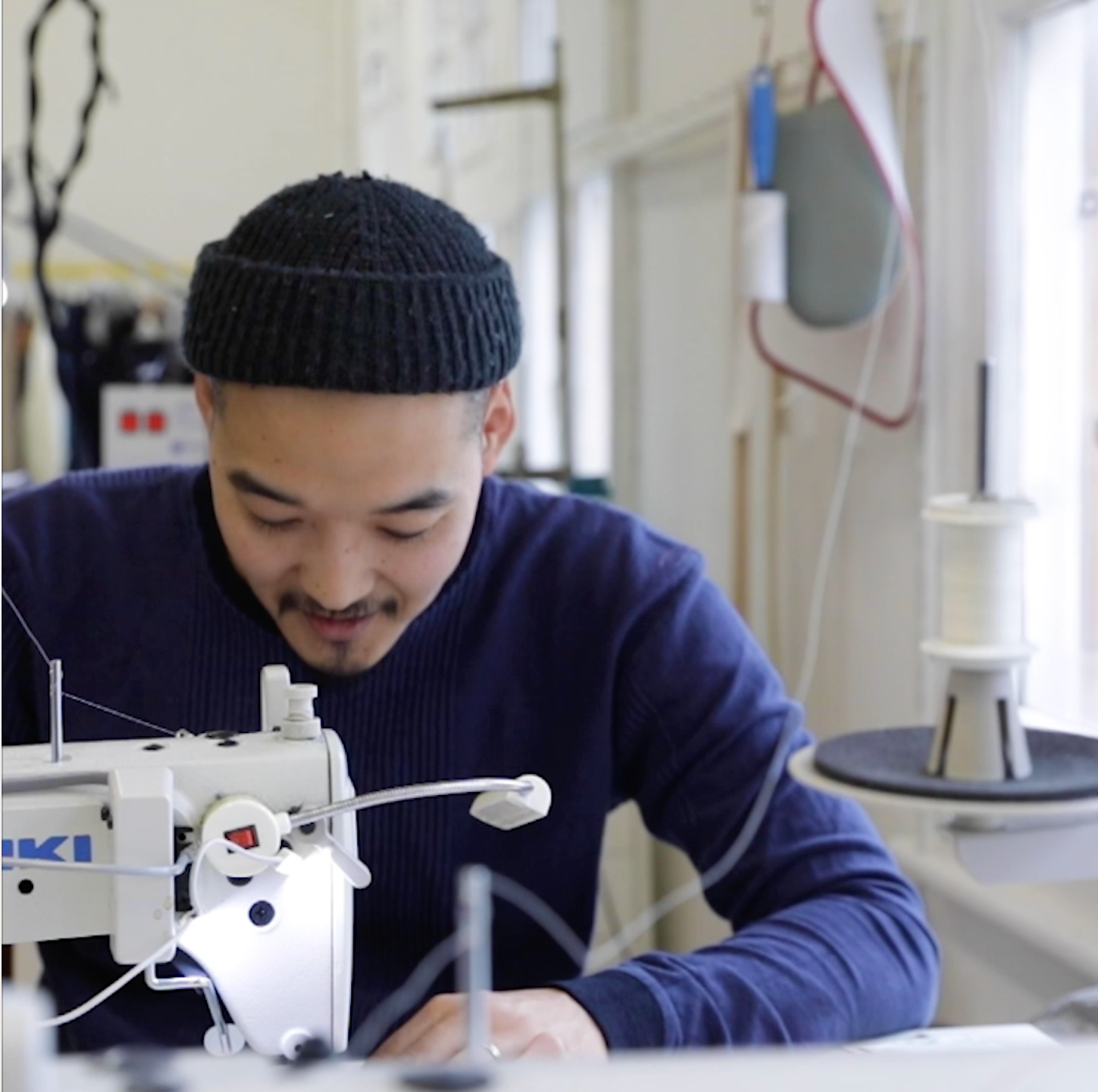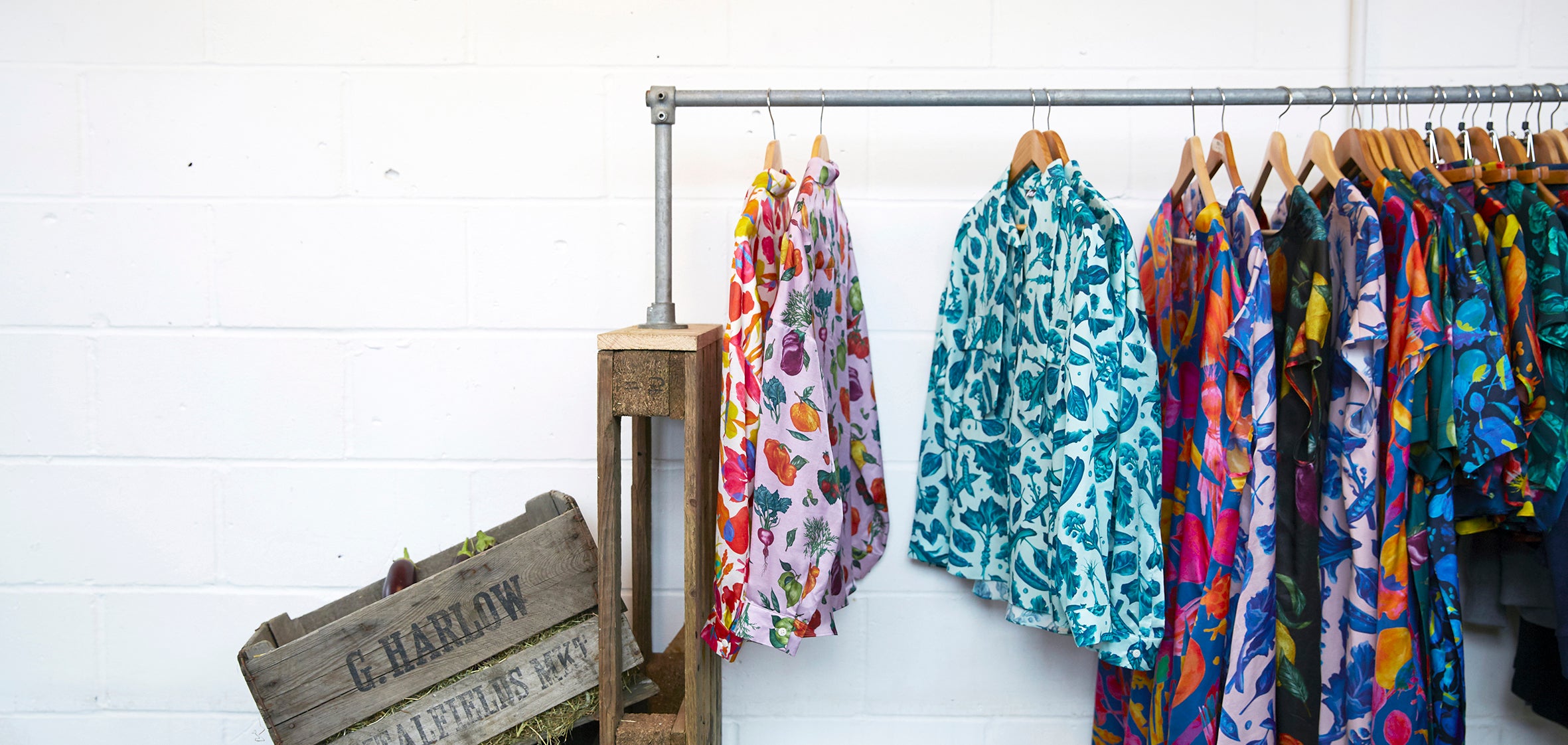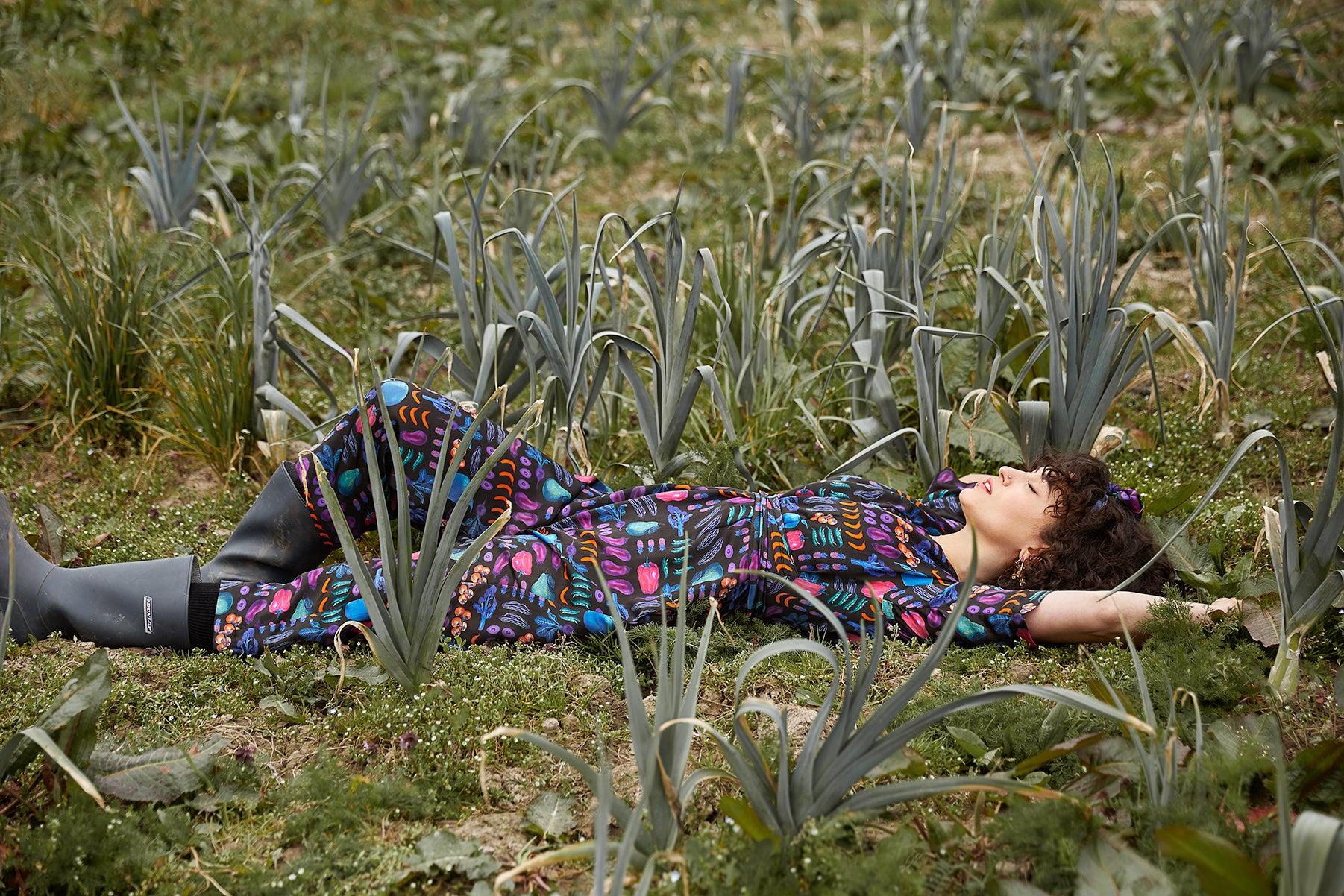Gung Ho - Transparency
·

·
Thanks to campaigns such as Fashion Revolution week and we are incredibly pleased to see so many people asking brands "who made my clothes?". This is such an important campaign as the more people ask, the more brands will listen and feel the pressure to become more transparent. There are many different processes to make a garment so we thought we would take this opportunity to be totally transparent about own manufacturing and processes.
We have two different manufacturing processes - 1 for the garments (blouses through to jumpsuits) and 1 for our sweatshirts and t-shirts.
The majority of the collection falls under our garments. The first step is selecting a beautiful and sustainable fabric base. We attend many different fabric shows and research what is the best fabric in terms of water usage, natural fibres (we avoid synthetics due to the microplastic pollution when these fibres are washed), chemicals as well as quality and fitting to the garment. At the moment we are using Tencel (regenerated, sustainably grown, wood cellulose) which feels like a lighter/ finer cotton and a Silk Tencel (32% Silk, 68% Tencel blend that feels 100% Silk). Unfortunately, we have to source this from China, but we're continuously on the hunt more sustainable fabrics that are closer to home. The exciting thing about sustainable fabric is the new tech that is consistently evolving - watch this space!
We then use fabric printers in Gloucestershire so that we keep things local and keep our carbon footprint as low as we can. It is important to us to build relationships with these smaller companies and we continue to support them collection after collection. This also means we're able to work to a smaller, more limited print run. Many companies have large minimum orders which means that smaller brands like us have to make a lot more than they actually need - resulting in excess fabric waste. Our suppliers allow us to print exactly what we need, so we can produce realistic collections. After all, we can always reorder! We choose to digitally print for a couple of reasons. It means that there are no screens or plates to produce, so less setup equipment, and printing directly onto the fabric also means less surplus ink. The inks used are Azo dye free and use less chemicals and water than traditional methods. The machines and inks are investments and the best quality that is built to last and make less waste.
Once the fabric is ready, it is sent to our manufacturers to transform into the finished product. This is a beautiful small studio in London, run by really great individuals. The standard is brilliant and we love supporting them. This is the exciting part where everything comes together. Our labels are made in the UK and our buttons are now biodegradable made from corozo nut in Gloucestershire too. We design our garments to fit humans - working to two sizes only: an XS/S (6,8,10) and a M/L (12,14,16). The cut and design is such that if you loose a bit of weight or gain some, you will still look and feel fabulous, and that is making the most out of the garment too. We all have those pieces we love in the wardrobe that don't quite fit right any more and we never want our garments to find themselves in that position. The film below is taken of our SS19 Food For Thought collection being produced, so you can see how lovely the studio is, and how much care goes into the making.
The second product process we have is our embroidered sweatshirts and T shirts. These are 100% GOTS certified organic cotton (with the exception of one or two designs that are 85% organic, 15% recycled polyester), and are produced in a Fairwear Foundation certified factory in Bangladesh. This means the factory complies with strict standards - employment is a choice, there is no discrimination, no child labour, freedom of association, fair living wages, reasonable hours of work, with safe conditions and a legal contract.
The products are then embroidered or silk screened in Oxford. We choose embroidery because it lasts forever. These are pieces to be looked after and loved for years and years to come. Our silk screen rule is to only use 1 colour in the design. This limits the screen prep, inks and water wastage for the design. Again we have chosen to support a UK based company so that we keep things local and keep our carbon footprint low. We have worked with these guys right from day one and love the quality of the pieces.
The products are then embroidered or silk screened in Oxford. We choose embroidery because it lasts forever. These are pieces to be looked after and loved for years and years to come. Our silk screen rule is to only use 1 colour in the design. This limits the screen prep, inks and water wastage for the design. Again we have chosen to support a UK based company so that we keep things local and keep our carbon footprint low. We have worked with these guys right from day one and love the quality of the pieces.
To top it all off our packaging is 100% biodegradable and recycled. Our pieces come with our educational mini-zine, highlighting the issue you are wearing, why it's important and what you can do to help - printed on recycled paper in the UK. Our swing tags are recycled kraft paper also printed in the UK. The garments are folded up in recycled tissue paper in a palm leaf platter. Yep, you heard. The (literally just pressed) Palm Leaf platter is actually something used for food vendors - which we thought was a genius addition to the Food For Thought collection. The cherry on the top is that we also add in a packet of organic seeds into the mix, for you to plant into the palm leaf tray - we want to encourage as many people to grow your own and see that not all produce is perfect. This is also just a lot of fun.
Fashion is one hell of an industry, creating some seriously beautiful garments - but there is a big curtain, behind which many people are suffering. Please do speak up to the brands you like and ask the questions that need asking. If they ignore you, unfortunately it's probably because they don't want to tell you the answer. Use your money as a way of voting your values - don't support suffering.
Big love,
Gung Ho
Check out the beautiful London studio where our garments are made here.


